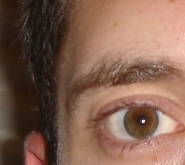Dear CNN,
I didn’t want to do this over the internet, in my blog of all places, but I don’t know how else to talk to you. We don’t seem to see each other much anymore and I can’t even remember the last time we had a civil conversation. I feel like I’ve made an effort here but that you have just left me out in the cold. It’s time to tell you how I feel and maybe it’s better for both of us that the world knows it. It’s taken me a while to work up to courage to say this to you and if I had to do it in person I might not be able to follow through so it’s good that once I hit the “Post” button there’s no taking this back: I’m leaving you.
You and I both know we’ve had problems for some time now. I don’t know about you, but I’ve been in denial about it for a long time now. I don’t know when I first started to notice it – maybe it was during the OJ trial or the Elian Gonzales incident – but I know that we started to drift apart sometime in the late 1990’s. Sure, we were still having good times back then, and you treated me better than anyone else ever did. You were always there for me – 24 hours a day, seven days a week, whenever I needed you. I’ll also never forget how generous you were. You gave me Headline News, CNN International, and of course, I’ll never forget the web site. Remember that night you gave me cnn.com? That was an amazing night.
Yet none of those things can make up for the growing distance between us. Somewhere along the line the bad times started to outnumber the good. I started to see pieces on your web site that made no sense to me. When I saw “Dog with amputated leg saves diabetic mom” I thought it was a mistake and that there had to be some other explanation. I guess when you love something you try to not see flaws and make excuses. But then there was the Morning Show. I didn’t even know what to think after that. I know I said some things that I regret, like calling you a network news rip-off and a “Charlie Gibson Lover”, and I apologized for that, but deep down I was telling you the truth. You blamed it on Fox News and the internet and said you’d try harder to change and be a better source of journalism for me, and I believed you.
Then came 2000 and the election. I came home to find hanging chads all over the place. You didn’t even try to hide it anymore! We fought for hours and decided to take a break from “us” for a few months. I thought that if I tried newspapers and other websites for a while I’d start to remember all those things I loved about you again. It seemed to work, and when we got back together things seemed better for a little while. You were great with September 11th, and I started to see the same CNN I fell in love with all those years ago. Sadly, though, I know now that nothing had changed. As soon you started to say the words “shock and awe”, I knew our problems had returned. Your morning show got worse with commentary and animal fluff pieces. You let Lou Dobbs start ranting about immigration on his show that was supposed to be about money. I knew our relationship was falling apart.
I told myself that as soon as you got through Katrina coverage that I would end things with you. You made it hard – Anderson Cooper helped me mask the pain with his persistent questions and pretty face. It seemed like you were making a real effort to win me back with actual journalism. I was also weak, forgot about our problems, and stayed with you for a few more years because it was just too easy. Then came Anna Nicole Smith. The night she died your eyes lit up like they did the night OJ was in his Bronco. Then you kept saying “baby daddy” over and over again and it seemed like it would never stop. You told me it was just a temporary thing, but in the same breath you reported on the Virginia Tech massacre in a way that made me want to vomit.
As hard as this is, we both know that “we” can’t work. I’ve been with you for twenty years now, and I’m having a hard time remembering why I fell in love with you. That first night we hung out during the invasion of Kuwait seems fresh in my mind but the emotions of the moment are gone now. I find myself longing for those days knowing that we can never get them back. I need some space from you for a while. I changed my browser homepage to MSNBC – I didn’t want to throw that in your face but I didn’t want you to hear it from someone else. I hope you take care of yourself and that someday you can recapture the good days. I’ll never hate you, but I don’t think that I can ever love you again. I hope that someday we can be friends, but that can only happen with time.
Good-bye,
Marty




